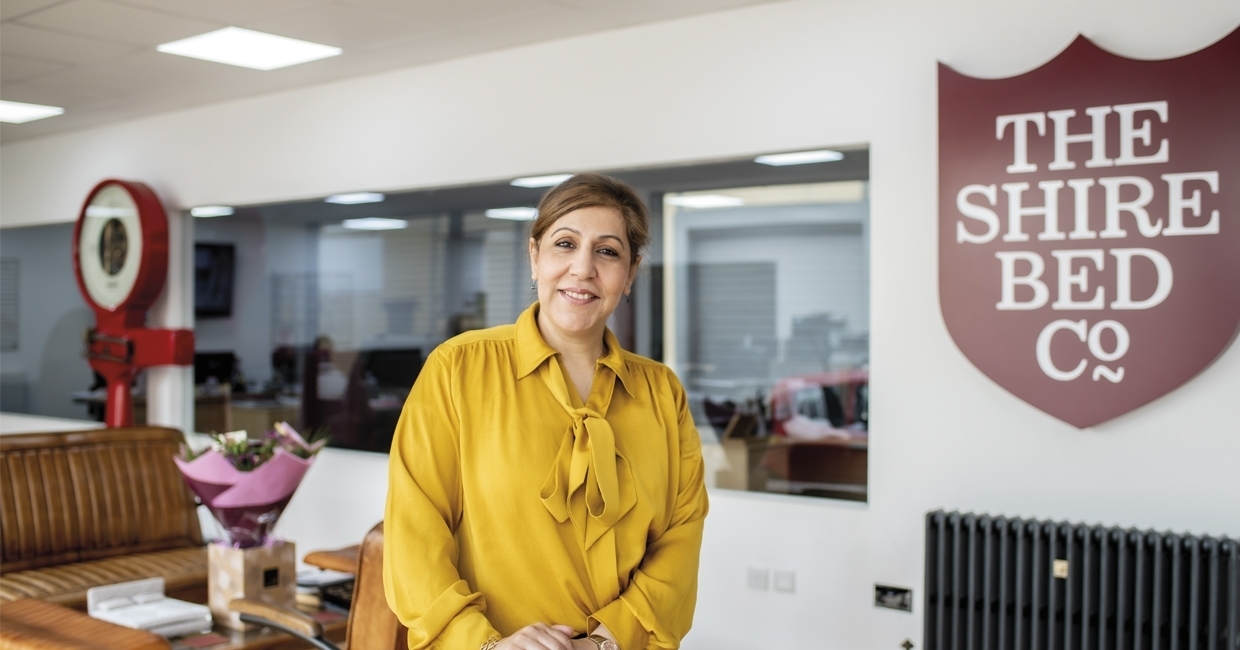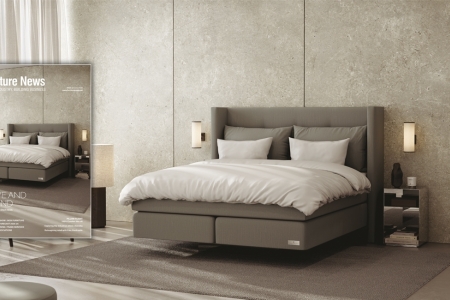If a more diverse workplace is a more productive workplace, why is the UK furniture industry falling short when it comes to representing people from ethnic minority backgrounds? In January's issue, Furniture News is looking at the challenges and opportunities of adopting a proactive approach to Diversity and Inclusion (D&I), with the help of individuals and enterprises leading the charge across retail and manufacture – including Shire Beds' marketing director, Fara Butt …
The principles of Equality, Diversity And Inclusion (EDI) are important in all areas of life, and especially in the corporate world. The furniture industry in this area has been a little slower off the mark in adopting and incorporating some of these principles.
I once had a career in secondary education, where EDI and issues around female empowerment are handled well. Joining the furniture industry felt like going back in time, in so many ways – there were fewer women, the hours longer and unsociable, work was away from home across the country or around the world.
My unease was not just my newness to the industry, but due to the feeling of not fitting in, being a woman in a male-dominated industry (and add to that being a woman of colour).
The world of furniture was quite different, and clearly inequalities and obstacles still exist today (in terms of culture in particular).Whilst things are heading in the right direction – today we have the first female president of the NBF – there is still a long way for us to go. I’m still aware of the gender and ethnic imbalance on a daily basis – when I come across women in the industry, it’s still a pleasant surprise. It is even rarer to meet minority ethnic women. This should not be the case.
The Women in Furniture Network (WIFN) is a great initiative in this area, and I hope diversity in all its forms becomes part of the work that has been started here.
My company, Shire Beds, an established player in the UK furniture and bedding industry with a reputation for quality and customer-centric products, becoming ‘the brand behind many brands’, has made strides in recent years. When I started, we had no women in the workforce. In hindsight, the cultural transformation started then to make Shire Beds the open, inclusive and diverse company it is today.
This cultural shift hasn’t happened by accident or overnight. The leadership at Shire Beds has also taken active steps to change the company culture and diversify the factory workforce, which once could not attract women at all.
A concerted effort to recruit more women has resulted in the sewing team at Shire Beds now consisting of a group of skilled women from the South Asian Pakistani background. For these women, joining the team has provided not only an opportunity for stable employment, but also a chance to hone and share traditional sewing skills, often passed down through generations. By employing women from the local community, Shire Beds supports their economic independence and personal growth.
The work I started is measurable and today, from the factory floor to managerial roles, the company embraces employees from diverse gender, ethnic and cognitive backgrounds. Workforce diversity has enabled Shire Beds to tap into a broad range of skills and perspectives, enriching both the workplace culture and the products it offers – and part of our success story lies in our commitment to fostering an inclusive workplace reflective of the community we serve.
Another vital part of EDI in the workplace at Shire Beds is that all our leaders recognise the value of an inclusive environment and actively engage with the workforce, ensuring open communication channels where employees feel respected and heard. And a supported and inclusive workplace has resulted in higher employee satisfaction and loyalty, reducing turnover rates.
Shire Beds continues to enhance and embrace diversity by recruiting talent from underrepresented groups in the industry. Being an anchor employee in Dewsbury, Shire Beds has a commitment to hiring locally, to strengthen ties with the community.
At an industry level, I feel there are real opportunities to advance the work in EDI. I think Industry 4.0 and greater digitalisation is exciting, as I believe it will bring greater opportunities for women in the industry in terms of flexible work, which women often need. ‘Green’ jobs too could encourage more women to join the industry, as many of these roles may be suited to a culture more suited to women.
The industry needs to continue to become more representative. EDI needs to be more than an acceptance of people that are different, but go further and empower them to overcome the barriers they may face to achieve their full potential. It’s more than the optics of a place – it’s about how comfortable people feel in that place’s culture.
And achieving greater representation, diversity and inclusion at an industry level is important at all levels – we should also have greater visibility of diverse players in the industry media, at business showcases and at awards. Advancing these laudable aims will lead to a more egalitarian and fair society, which can only be a good thing for everyone.
Read our full report in January's issue.










